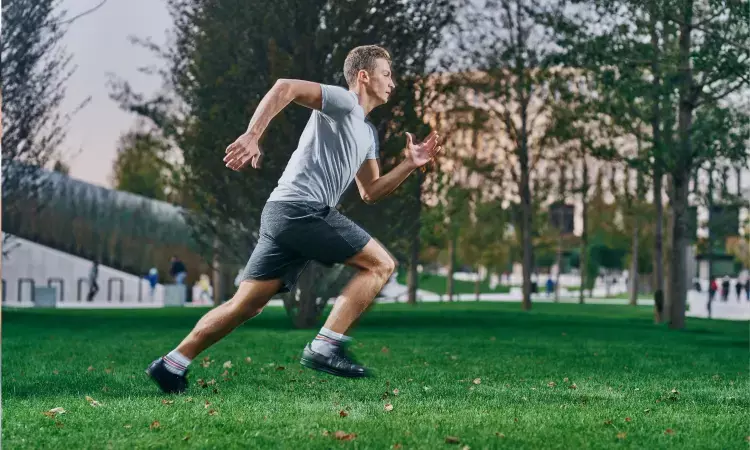- Home
- Medical news & Guidelines
- Anesthesiology
- Cardiology and CTVS
- Critical Care
- Dentistry
- Dermatology
- Diabetes and Endocrinology
- ENT
- Gastroenterology
- Medicine
- Nephrology
- Neurology
- Obstretics-Gynaecology
- Oncology
- Ophthalmology
- Orthopaedics
- Pediatrics-Neonatology
- Psychiatry
- Pulmonology
- Radiology
- Surgery
- Urology
- Laboratory Medicine
- Diet
- Nursing
- Paramedical
- Physiotherapy
- Health news
- Fact Check
- Bone Health Fact Check
- Brain Health Fact Check
- Cancer Related Fact Check
- Child Care Fact Check
- Dental and oral health fact check
- Diabetes and metabolic health fact check
- Diet and Nutrition Fact Check
- Eye and ENT Care Fact Check
- Fitness fact check
- Gut health fact check
- Heart health fact check
- Kidney health fact check
- Medical education fact check
- Men's health fact check
- Respiratory fact check
- Skin and hair care fact check
- Vaccine and Immunization fact check
- Women's health fact check
- AYUSH
- State News
- Andaman and Nicobar Islands
- Andhra Pradesh
- Arunachal Pradesh
- Assam
- Bihar
- Chandigarh
- Chattisgarh
- Dadra and Nagar Haveli
- Daman and Diu
- Delhi
- Goa
- Gujarat
- Haryana
- Himachal Pradesh
- Jammu & Kashmir
- Jharkhand
- Karnataka
- Kerala
- Ladakh
- Lakshadweep
- Madhya Pradesh
- Maharashtra
- Manipur
- Meghalaya
- Mizoram
- Nagaland
- Odisha
- Puducherry
- Punjab
- Rajasthan
- Sikkim
- Tamil Nadu
- Telangana
- Tripura
- Uttar Pradesh
- Uttrakhand
- West Bengal
- Medical Education
- Industry
Physical activity may lower risk of developing diabetes

USA: According to a study published in The Journal of Clinical Endocrinology & Metabolism, doing physical exercises in greater intensity reduces the risk of type 2 diabetes mellitus (T2DM).
Some studies in the literature have highly pointed to the relationship between physical activity and incident T2DM, and these studies have relied primarily on questionnaires at a single time point.
Andrew S Perry from the Vanderbilt Translational and Clinical Cardiovascular Research Center and colleagues used data from wearable devices linked to electronic health records to investigate, “What is the relationship between physical activity and incident T2DM?” The researchers evaluated for effect modification with age, sex, body mass index (BMI), and sedentary time using multiplicative interaction terms.
The study summary is given as follows:
- The data was used from personal Fitbit devices.
- There were 5677 participants with a median age of 51 years in the All of Us Research Program.
- There were 74% female and 89% White among the participants.
- Ninety-seven participants constituting 2%, had incident T2DM over 3.8 years of median follow-up (2010 – 2021).
- The hazard of T2DM was reduced by 44 % in those participants with a daily step count of 10700 compared with those with a daily step count of 6000.
- The predicted cumulative incidence of type 2 diabetes at five years based on a daily step count of 13,245 steps and 4301 steps per day was 0.8% and 2.3 %, respectively.
- The median step daily count was 7924 steps across all monthly averages.
- The median fairly active and median very active physical activity was 15.96 minutes and 16.06 minutes, respectively.
- No evidence for effect modification by age, sex, BMI, or sedentary time was reported by the researchers.
To conclude, greater time spent in physical activity lowers the risk of T2DM.
Further reading:
Andrew S Perry, Jeffrey S Annis, Hiral Master, Matthew Nayor, Andrew Hughes, Aymone Kouame, Karthik Natarajan, Kayla Marginean, Venkatesh Murthy, Dan M Roden, Paul A Harris, Ravi Shah, Evan L Brittain, Association of Longitudinal Activity Measures and Diabetes Risk: An Analysis From the National Institutes of Health All of Us Research Program, The Journal of Clinical Endocrinology & Metabolism, 2022; dgac695, https://doi.org/10.1210/clinem/dgac695
BDS, MDS in Periodontics and Implantology
Dr. Aditi Yadav is a BDS, MDS in Periodontics and Implantology. She has a clinical experience of 5 years as a laser dental surgeon. She also has a Diploma in clinical research and pharmacovigilance and is a Certified data scientist. She is currently working as a content developer in e-health services. Dr. Yadav has a keen interest in Medical Journalism and is actively involved in Medical Research writing.
Dr Kamal Kant Kohli-MBBS, DTCD- a chest specialist with more than 30 years of practice and a flair for writing clinical articles, Dr Kamal Kant Kohli joined Medical Dialogues as a Chief Editor of Medical News. Besides writing articles, as an editor, he proofreads and verifies all the medical content published on Medical Dialogues including those coming from journals, studies,medical conferences,guidelines etc. Email: drkohli@medicaldialogues.in. Contact no. 011-43720751


